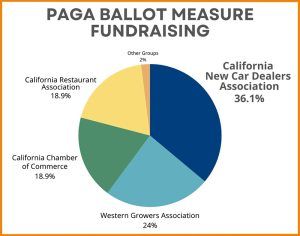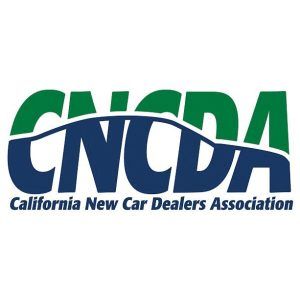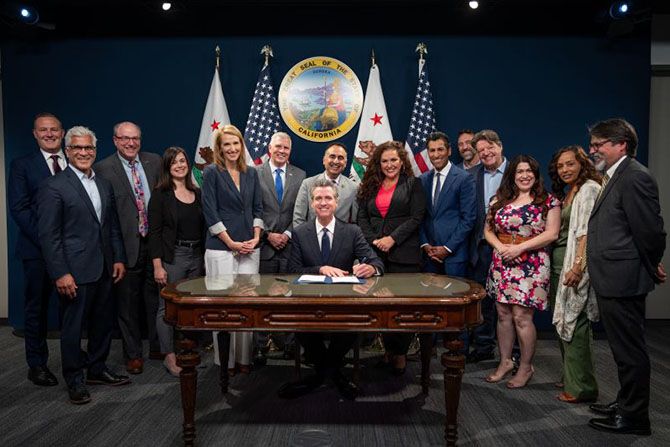Running a successful car dealership in California has always been about more than just selling cars; it’s about building a business that supports employees, contributes to the local community and thrives in a competitive market. However, this goal has become increasingly challenging over the past decade as California business (and dealership) owners found themselves ensnared in the web of the Private Attorneys General Act (PAGA).
PAGA was enacted in 2003 by then‑recalled Gov. Gray Davis in his last few days in office. The law was initially intended to help employees enforce labor laws by allowing them to sue their employers on behalf of the state. While its original intentions may have been noble, the reality of PAGA’s implementation was far from practical.
Over the years, it became clear that a few trial attorneys caught on to PAGA loopholes, allowing them to exploit the law for personal gain by filing lawsuits on behalf of employees for minor or technical violations that had little to do with their well-being. These PAGA lawsuits imposed staggering (and sometimes devastating) penalties on California businesses and nonprofits, often forcing them to pay millions of dollars to settle the suits — even when violations were as minor as a clerical error on a pay stub. Most settlements went to the attorneys, with employees receiving only a fraction of the total payout.
For California’s franchised car dealerships, this was more than just a legal issue; it was an existential threat. The financial burden of these lawsuits was crippling, putting over 130,000 California dealership jobs at risk and threatening the very survival of franchised dealerships that have been, in many cases, cornerstones of their communities for generations.
Recognizing the seriousness of the problem, the California New Car Dealers Association (CNCDA) knew it was our responsibility to take action for our members. The journey to PAGA reform was not an easy one. Additionally, the inherently problematic nature of PAGA lawsuits is that providing explanations to adequately inform the public (and, in turn, legislators) required sharing real-life examples, thus potentially painting a target on business owners’ backs (even when the lawsuits were baseless). However, as the number of lawsuits grew, it became clear that too many businesses were devastated by these cases, and our dealers were not alone in their plight.

CNCDA began its fight against PAGA roughly six years ago, initially focusing on raising awareness among its members and gathering the necessary funds to challenge the law. This was no small task. Rallying support for a cause as complex and multifaceted as PAGA reform required tremendous effort and perseverance. Some members initially hesitated to contribute, uncertain about the chances of success or the potential backlash from the public.
However, the CNCDA Board of Directors pressed on, and as the lawsuits piled up, more and more members recognized the necessity of change. The association realized that to bring about meaningful reform, we would need to qualify the issue on the upcoming general election ballot and bring the issue to California voters to weigh in.
When CNCDA started PAGA reform efforts in 2018, the expectation was qualifying and running a ballot measure in 2022. Unfortunately, research and drafting pushed our efforts into late 2021, and COVID-19 unavoidably extended the time needed for the 700,000 valid signatures required for qualification. In the spring of 2022, the coalition pushed qualification to the 2024 general election to ensure we obtained the requisite number of signatures.
This is when our collective dealership body rallied together and raised the funds to get the signatures needed to place PAGA reform on the ballot.
In late 2023, the association realized that to better secure a reform victory, we would need to adopt a dual-track approach: simultaneously working towards campaigning for the ballot measure while also engaging in a new strategic public affairs campaign with a coalition of other California business groups to encourage legislators toward enacting reform directly.
The turning point came when CNCDA and the coalition realized that pursuing a legislative fix in Sacramento could bring a more immediate (and cost‑effective) solution. This shift in strategy, guided by CNCDA Director of Legislative Affairs Kenton Stanhope, involved engaging with legislators and aligning with labor unions that had previously opposed reform. By presenting a united front and demonstrating the real-world impacts of PAGA on businesses and employees, CNCDA helped build a consensus for change.
The path was far from smooth. During this period, CNCDA dealers and staff worked tirelessly, building relationships with key legislators, holding over 90 meetings with lawmakers during our 2024 Dealer Day, and leveraging the power of our membership to make nearly 125 phone calls to elected officials, urging them to support proposed PAGA reform bills.
This approach proved to be a game-changer. With unmatched support from our dealer members, CNCDA raised nearly $3.85 million for the initial ballot measure campaign (securing more than half of all the funds needed to qualify the measure for the ballot) and over $150,000 for the public affairs campaign. As momentum built, the coalition against PAGA grew stronger, with other business groups joining the fight, but it was clear to all: The car dealers were at the wheel and steering the coalition toward success.
“Our multifaceted approach allowed us to attack the problem from multiple angles. By building relationships at the state capitol and engaging with all stakeholders, including labor unions, we were able to create the momentum needed to push this reform across the finish line,” said Kenton Stanhope.
The result of these efforts was nothing short of historic. On July 1, 2024, Gov. Gavin Newsom signed SB 92 and AB 2288 into law, marking a significant victory for California’s businesses. These bills bring long-overdue reforms to PAGA, ensuring that employees’ claims are resolved more quickly and fairly while providing relief to businesses showing goodwill to comply with the law.
David Simpson, CNCDA 2024 chairman, echoed this sentiment: “We faced incredible challenges along the way, but the perseverance of our members and the unwavering support from our coalition partners made all the difference. The PAGA reform victory belongs to every dealer who refused to give up.”
The success of this campaign serves as a testament to the power of CNCDA’s membership and the impact that a dedicated group of individuals can have on shaping public policy. The fight against PAGA was long and arduous, but in the end, it was worth having — a fight that secured a brighter future for California’s franchised dealers and the countless employees who depend on them.
Timeline
Fixing PAGA is a testament to your dedication. CNCDA’s dealers were the true driving force behind this success.
- 2004: PAGA was enacted in response to concerns over the insufficient resourcing of the California Labor Commissioner’s office. While intended to protect employees, it largely failed in practice.
- 2006: Law firms specializing in PAGA cases emerged. Lawsuits under PAGA took nearly twice as long to resolve, paid employees significantly less, cost employers billions and allowed attorneys to claim a third of settlements.
- 2014: The California Supreme Court ruled in the Iskanian case that since the state of California didn’t sign arbitration agreements between employers and employees, PAGA cases could move forward outside arbitration. This led to a tsunami of new PAGA cases.
- 2016: PAGA cases surged by 1,440%, with 5,000 cases filed. Since 2016, dealers alone paid over $60 million in public PAGA settlements, with settlements from all employers expected to reach $16 billion in the next five years.
- 2018: The average cost of a single PAGA settlement to an employer was $1,118,777.
- 2020: COVID-19 significantly changed California’s employment law, leading to an increase in lawsuits from predatory trial attorneys.
- 2022: CNCDA and our dealer members led a coalition to qualify PAGA reform for the November 2024 ballot and raised over $3.5 million, plus another $1.5 million from CNCDA itself (more than half of the total raised from all groups).
- 2023: Fundraising and PAGA reform education continued, with efforts to support our ballot measure campaign.
- February 2024: CNCDA adopted a dual-approach strategy, pursuing a legislative solution to PAGA while maintaining momentum on the ballot measure front.
- July 2024: After months of intense lobbying and public affairs efforts, two bills — AB 2288 (Kalra) and SB 92 (Umberg) — were introduced and signed into law by Gov. Gavin Newsom.
Advocacy Highlights
- 90+ legislative meetings focused on addressing PAGA at 2024 Dealer Day. The conversations with legislators were undeniably impactful.
- 160 members donated $3,850,900 toward our ballot measure fundraising efforts. As a result, CNCDA members raised more than half of the total dollars to qualify for the ballot.
- Nearly 125 phone calls were made by our members to their elected officials voicing support for SB 92 (Umberg; D-Santa Ana) and AB 2288 (Kalra; D-San Jose). The legislation passed with overwhelming support.









